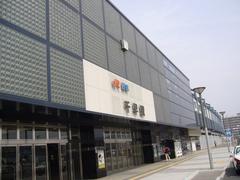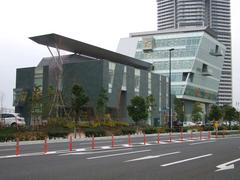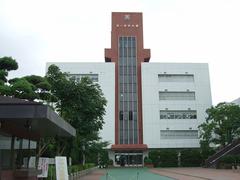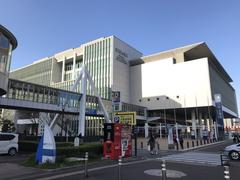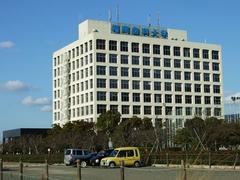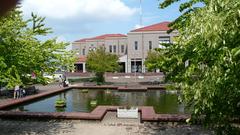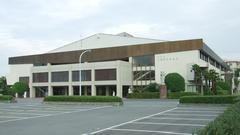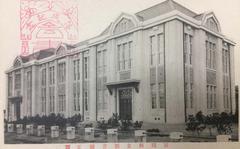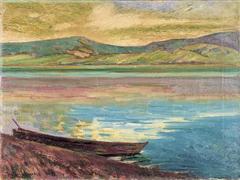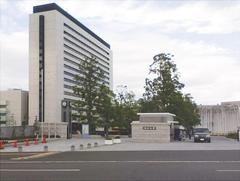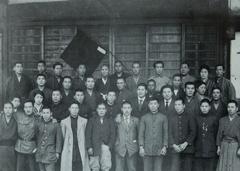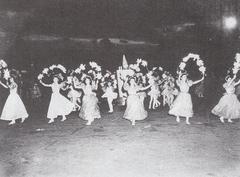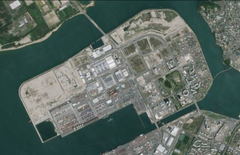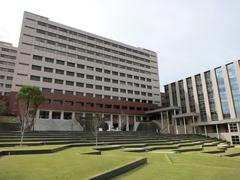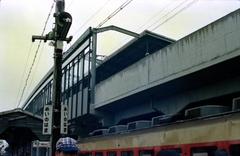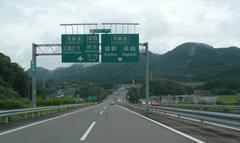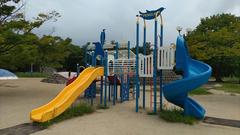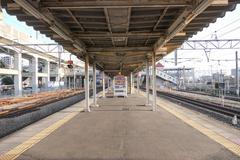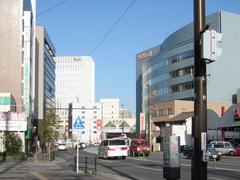Fukudaimae Station: Visiting Hours, Tickets, and Nearby Attractions in Fukuoka
Date: 04/07/2025
Introduction
Fukudaimae Station, situated in the southern district of Fukuoka City, Japan, is not just a transportation hub but a vibrant gateway to the region’s academic, historical, and cultural riches. Opened in 2005 on the Nanakuma Line of the Fukuoka City Subway, the station stands directly in front of Fukuoka University, one of Kyushu’s premier educational institutions. Its strategic location offers seamless access to both modern city life and centuries-old heritage, connecting visitors to renowned sites such as the Fukuoka Castle ruins and Ohori Park. With barrier-free facilities, multilingual support, and a dynamic student atmosphere, Fukudaimae Station is an essential starting point for exploring Fukuoka’s storied past and lively present (Fukuoka Castle History, Fukuoka City Subway Information).
Table of Contents
- Historical Evolution of Fukuoka City
- Fukudaimae Station: Background, Hours, and Ticketing
- Exploring Historical and Cultural Sites Near Fukudaimae Station
- Practical Visitor Tips and FAQs
- The Fukuoka University Monument: Visitor Guide
- Major Attractions and Events Around Fukudaimae Station
- Summary & Recommendations
- References
Historical Evolution of Fukuoka City
Ancient and Medieval Foundations
Fukuoka’s roots trace back to its role as a key point of contact between Japan and mainland Asia. The Dazaifu government, known as the “Imperial Court of Far Away,” managed diplomatic and military affairs from this region, while the Korokan guest house hosted foreign envoys. During the Middle Ages, Hakata port flourished as a center for international trade, establishing the city’s cosmopolitan legacy (Fukuoka Prefecture History).
Edo Period: Commercial and Cultural Growth
In the Edo period (1603–1867), Fukuoka became a thriving commercial center noted for textiles like Hakata-ori and Kurume-gasuri, and for the construction of Fukuoka Castle by Kuroda Nagamasa. The castle’s sophisticated design and strategic location marked Fukuoka’s rise as a regional power (Fukuoka Castle History).
Meiji Restoration and Modernization
The Meiji Restoration led to the decommissioning of Fukuoka Castle and the transformation of its grounds into Maizuru Park. Fukuoka later emerged as a major coal and steel industrial hub, and today is recognized as one of Japan’s most innovative cities, blending tradition with modern urban development (Fukuoka Castle Modern Significance).
Fukudaimae Station: Background, Visiting Hours, and Ticket Information
Origins and Naming
Fukudaimae Station (福大前駅), meaning “in front of Fukuoka University,” was established to serve the growing needs of the university and surrounding residential districts. Opened in 2005, it is a key stop on the Nanakuma Line, supporting both academic life and the broader community.
Operating Hours
The station operates daily from around 5:30 AM to midnight. Exact first and last train times may vary, so visitors should consult the official timetable before traveling.
Ticketing Information
Tickets can be purchased at station vending machines. Options include single-ride tickets, rechargeable IC cards (Sugoca, Nimoca, Suica, Pasmo), and day passes for unlimited travel. Fares start at approximately 260 yen, and IC cards are valid on buses and other regional train lines (Fukuoka City Subway Information).
Accessibility and Facilities
The station features elevators, tactile paving, and barrier-free facilities to accommodate visitors with mobility needs. Multilingual signage and information boards enhance accessibility for international travelers.
Community and Urban Development
Fukudaimae Station has spurred residential and commercial growth in the area, helping create a lively, student-oriented district. Its integration into the Nanakuma Line supports Fukuoka’s commitment to sustainable, efficient urban mobility.
Exploring Historical and Cultural Sites Near Fukudaimae Station
Fukuoka Castle and Maizuru Park
- Hours: Maizuru Park is open daily from 6:00 AM to 10:00 PM.
- Admission: Free.
The Fukuoka Castle ruins, set within Maizuru Park, offer panoramic city views, historical stone walls, and scenic cherry blossoms in spring. Informational plaques in Japanese and English help visitors appreciate the site’s significance (Fukuoka Castle Highlights).
Ohori Park
Adjacent to Maizuru Park, Ohori Park features a large pond, walking paths, and traditional gardens. It is a favorite spot for relaxation and seasonal events, easily accessible via subway (Ohori Park Information).
Ropponmatsu and Fukuoka City Science Museum
- Hours: 9:30 AM to 5:30 PM (closed Mondays).
- Admission: Adults ¥400, Children ¥200; planetarium separate.
The museum’s interactive exhibits and planetarium make it a popular destination for families and students.
Fukuoka Art Museum
- Hours: 9:30 AM to 5:30 PM (closed Mondays).
- Admission: Adults ¥200, discounts for students/seniors; special exhibitions extra.
Located next to Ohori Park, the museum showcases Asian and Western art, including works by Salvador Dalí and local artists.
Practical Visitor Tips and FAQs
Transportation and Accessibility
- Use IC cards such as Sugoca, Nimoca, or Suica for convenient travel across subway and bus lines.
- Day passes are cost-effective for tourists planning multiple trips.
- The subway connects Fukudaimae Station to major hubs like Tenjin and Hakata.
Amenities
- Convenience stores, ATMs, public restrooms, and affordable accommodations are available near the station (Fukuoka Accommodation).
Safety and Health
- Fukuoka is a safe city with high standards of public health.
- Emergency medical care is available; travel insurance is recommended.
- Tipping is not customary in Japan (Tipping in Japan).
Seasonal Events
- Major festivals include the Hakata Gion Yamakasa (July), Ohori Park Fireworks (August), and Christmas illuminations (Fukuoka Calendar).
Language Support
- English signage is common in tourist areas, but a translation app or phrasebook is helpful.
- The Fukuoka International Tourist Information Center at Fukuoka Airport provides multilingual support (Tourist Information Center).
Frequently Asked Questions
Q: What are Fukudaimae Station’s hours?
A: Approximately 5:30 AM to midnight.
Q: How do I buy tickets?
A: Use vending machines for single-ride tickets or IC cards.
Q: Is Fukudaimae Station accessible?
A: Yes, with elevators, tactile paving, and barrier-free facilities.
Q: What attractions are nearby?
A: Fukuoka University, Maizuru Park, Ohori Park, cafés, and bookstores.
Q: Is the area safe?
A: Yes, with security measures and a welcoming atmosphere.
The Fukuoka University Monument: Visitor Guide
Overview and Significance
Located near Fukudaimae Station, the Fukuoka University Monument commemorates the university’s legacy and contributions to regional education. The monument is a popular spot for students, alumni, and tourists interested in the institution’s history.
Visiting Information
- Hours: Daily, 8:00 AM–6:00 PM (last entry 5:30 PM)
- Admission: Free
- Guided Tours: Weekends and holidays, 10:00 AM and 2:00 PM (book via Official Fukuoka University Website)
Accessibility
The monument area is fully accessible, with ramps and tactile paving. Fukudaimae Station also offers barrier-free access.
Getting There
- Subway: Nanakuma Line to Fukudaimae Station
- Bus: Multiple routes serve the area (HeyRoseanne)
- Bike Rentals: Available near the station
Nearby Attractions
- Ohori Park & Maizuru Park (VisitInsideJapan)
- Tenjin Area: Major shopping and dining hub
- Hakata Station: Main transport hub for the region
Major Attractions and Events Around Fukudaimae Station
Local Experiences
- Cafés, Bookstores, and Eateries: Reflect the district’s lively student culture.
- Seasonal Events: University festivals, international fairs, and cultural exhibitions.
- Nakasu Yatai Food Stalls: Experience Fukuoka’s famous street food scene.
Notable Festivals
- Hakata Gion Yamakasa: July 1–15, with float races and city-wide celebrations.
- Summer Fireworks: Chikugo River Fireworks Festival in August.
- Art Exhibitions: Regular events at local museums.
Unique Experiences
- Tea Ceremonies: Participate in traditional rituals at local gardens.
- Workshops: Try calligraphy or pottery at nearby cultural centers.
Summary & Recommendations
Fukudaimae Station is more than a transit point. It’s a dynamic hub connecting you to Fukuoka’s academic heritage, historical landmarks, vibrant festivals, and culinary delights. With convenient hours, accessible facilities, and proximity to a range of attractions, it offers both depth and diversity for travelers and students alike. Use IC cards for easy transit, check event calendars for festival highlights, and leverage digital resources like the Audiala mobile app for real-time information.
For further details, consult official tourism websites and trusted guides. Start your journey at Fukudaimae Station to explore the blend of history, culture, and urban energy that defines Fukuoka (Fukuoka Travel Guide, Official Fukuoka University Website).
References
- Fukuoka Prefecture History
- Fukuoka Castle History
- Fukuoka City Subway Information
- Tourist Information Center
- FISOP Foreign Student Statistics
- Wikipedia: Fukudaimae Station
- HeyRoseanne: Fukuoka Itinerary
- VisitInsideJapan: Discover Fukuoka History
- Tourist Japan: Japan in July
- NAVITIME: Japan Travel by NAVITIME
Enjoy your journey through one of Japan’s most vibrant and culturally rich cities!
